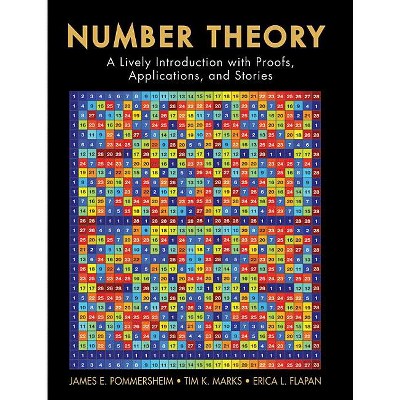About this item
Highlights
- The story of GDP and why we need a better measurement of growth In one lifetime, GDP, or Gross Domestic Product, has ballooned from a narrow economic tool into a global article of faith.
- About the Author: Dirk Philipsen is a German- and American-trained professor of economic history at the Sanford School of Public Policy and a senior fellow at the Kenan Institute for Ethics, both at Duke University.
- 416 Pages
- Business + Money Management, Economic History
Description
About the Book
"In one lifetime, GDP, or Gross Domestic Product, has ballooned from a narrow economic tool into a global article of faith. It is our universal yardstick of progress. As The Little Big Number demonstrates, this spells trouble. While economies and cultures measure their performance by it, GDP ignores central facts such as quality, costs, or purpose. It only measures output: more cars, more accidents; more lawyers, more trials; more extraction, more pollution--all count as success. Sustainability and quality of life are overlooked. Losses don't count. GDP promotes a form of stupid growth and ignores real development.How and why did we get to this point? Dirk Philipsen uncovers a submerged history dating back to the 1600s, climaxing with the Great Depression and World War II, when the first version of GDP arrived at the forefront of politics. Transcending ideologies and national differences, GDP was subsequently transformed from a narrow metric to the purpose of economic activity. Today, increasing GDP is the highest goal of politics. In accessible and compelling prose, Philipsen shows how it affects all of us. But the world can no longer afford GDP rule. A finite planet cannot sustain blind and indefinite expansion. If we consider future generations equal to our own, replacing the GDP regime is the ethical imperative of our times. More is not better. As Philipsen demonstrates, the history of GDP reveals unique opportunities to fashion smarter goals and measures. The Little Big Number explores a possible roadmap for a future that advances quality of life rather than indiscriminate growth."--Book Synopsis
The story of GDP and why we need a better measurement of growth
In one lifetime, GDP, or Gross Domestic Product, has ballooned from a narrow economic tool into a global article of faith. As The Little Big Number demonstrates, this spells trouble. While economies and cultures measure their performance by it, GDP only measures output. It ignores central facts such as quality, costs, or purpose. Sustainability and quality of life are overlooked. Losses don't count. The world can no longer afford GDP rule--GDP ignores real development. Dirk Philipsen demonstrates how the history of GDP reveals unique opportunities to fashion smarter goals and measures. The Little Big Number explores a possible roadmap for a future that advances quality of life rather than indiscriminate growth.From the Back Cover
"GDP is not just a number but is code for a set of economic values and principles that we're not supposed to question. Philipsen breaks that taboo by critically assessing the origins and impacts of our overreliance on this flawed metric. Anyone who wants to understand our economy's weaknesses--and how to make them better--needs to read this book."--Annie Leonard, author of The Story of Stuffand executive director of Greenpeace USA
"Philipsen brilliantly exposes the skeleton hiding in the economist's closet--the dangerously misleading talisman of GDP. He uncovers the extraordinary story of how good intentions morphed into the monstrous misconception of public progress and economic value that reigns over politics and public opinion. If society fails to heed Philipsen's message about developing new ways to measure economic gain and loss, the sustainable future is not going to be possible."--William Greider, author of The Soul of Capitalism
"The Little Big Number makes the case that GDP has become counterproductive and we need better goals and measures of progress. An excellent and timely book."--Robert Costanza, Australian National University
"Philipsen presents a well-researched, persuasively written book on what is wrong with the economic system we live in and live by. Showing that the GDP measure binds all the different fallacies of our economic world together, he offers a call to action on what we need to change now."--Floris Heukelom, Radboud University
"The Little Big Number demonstrates that the reigning measure of economic policymaking worldwide is not only inadequate but perverse in its impact on any possibility for sane social and economic discourse. This impressive and lively book will become the authoritative text for critiquing GDP."--Thad Williamson, University of Richmond
Review Quotes
"[The Little Big Number] takes the anti-GDP case even further. . . . Philipsen argues that not only is GDP a flawed statistic in need of replacing--but the whole notion of open-ended economic growth needs to go, too."---Kevin Hartnett, Boston Globe
"[A] provocative and insightful book. . . . The book stands on its own as a piece of economic history, but also serves as an important call for social change."---Alex Mitchell, Consumption Markets & Culture
"[Philipsen's] call for a dialogue about setting new goals--sustainability, equity, democratic accountability, and economic viability--should command our attention. . . . It won't be easy. But Philipsen is surely right that no task is more important."---Glenn C. Altschuler, Huffington Post
"[Philipsen] is not the first to question the utility of GDP estimates, but he may be the most exasperated. His comprehensive history. . . compares GDP to any number of villains in order to make tangible the number's many flaws. . . . He is keyed into how a culture that once burgeoned can implode, and he is anxious about ours."---Katy Lederer, New Yorker
"Comprehensive and readable. . . . Philipsen is motivated by a profound dissatisfaction with the dominance of growth in the national economic agenda, and with the way in which GDP. . . has become a goal rather than simply a measuring tool. . . . [I]n the end the policies he advocates may indeed prevail, and our fixation on growth in GDP as the sole indicator of human happiness may at last be laid to rest."---David Throsby, Times Literary Supplement
"Dirk Philipsen's The Little Big Number, couldn't have come at a better time."---Douglas Beal, Huffington Post
"Its cautionary story of the creation of GNP accounting is eye-opening, and well told. The list of ways that GDP could be improved, even as a measure of production . . . all provoke thought. The book easily could be used as a directory of research criticizing GDP."---Donald Frey, EH.Net
"Some efforts are already underway, most notably the 'Beyond GDP' initiative by the European Commission, but much remains to be done. Philipsen's book is a clarion call."---Seeking Alpha
"This book nicely summarizes the many critiques of GDP. Philipsen's knowledge of economic theory, statistics, econometric accounting, and history is impressive."---Stephen Macekura, American Historical Review
About the Author
Dirk Philipsen is a German- and American-trained professor of economic history at the Sanford School of Public Policy and a senior fellow at the Kenan Institute for Ethics, both at Duke University.











